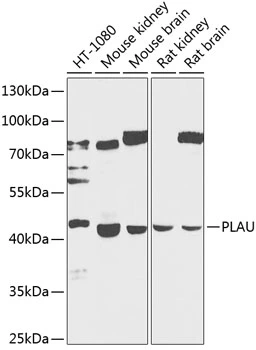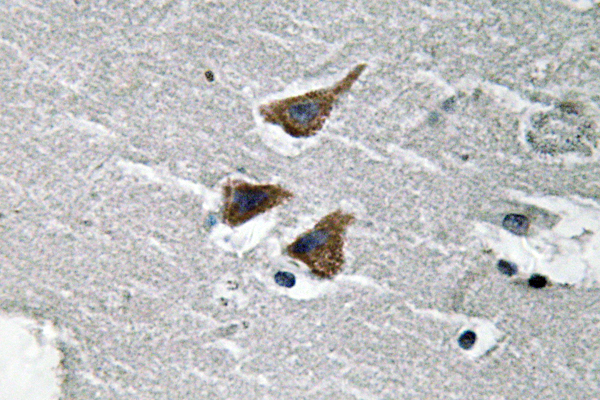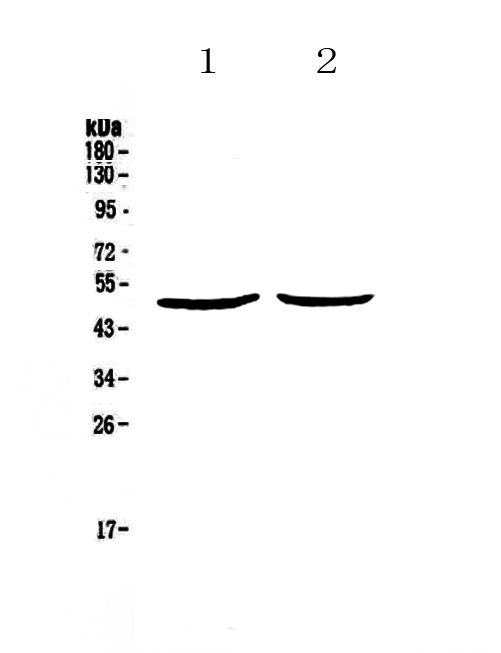
WB analysis of various sample lysates using GTX66413 Urokinase antibody. Dilution : 1:1000 Loading : 25μg per lane
Urokinase antibody
GTX66413
ApplicationsWestern Blot
Product group Antibodies
ReactivityHuman, Mouse, Rat
TargetPLAU
Overview
- SupplierGeneTex
- Product NameUrokinase antibody
- Delivery Days Customer9
- Application Supplier NoteWB: 1:500 - 1:2000. *Optimal dilutions/concentrations should be determined by the researcher.Not tested in other applications.
- ApplicationsWestern Blot
- CertificationResearch Use Only
- ClonalityPolyclonal
- ConjugateUnconjugated
- Gene ID5328
- Target namePLAU
- Target descriptionplasminogen activator, urokinase
- Target synonymsATF, BDPLT5, QPD, UPA, URK, u-PA, urokinase-type plasminogen activator, U-plasminogen activator, plasminogen activator, urinary
- HostRabbit
- IsotypeIgG
- Protein IDP00749
- Protein NameUrokinase-type plasminogen activator
- Scientific DescriptionThis gene encodes a secreted serine protease that converts plasminogen to plasmin. The encoded preproprotein is proteolytically processed to generate A and B polypeptide chains. These chains associate via a single disulfide bond to form the catalytically inactive high molecular weight urokinase-type plasminogen activator (HMW-uPA). HMW-uPA can be further processed into the catalytically active low molecular weight urokinase-type plasminogen activator (LMW-uPA). This low molecular weight form does not bind to the urokinase-type plasminogen activator receptor. Mutations in this gene may be associated with Quebec platelet disorder and late-onset Alzheimers disease. Alternative splicing results in multiple transcript variants, at least one of which encodes an isoform that is proteolytically processed. [provided by RefSeq, Jan 2016]
- ReactivityHuman, Mouse, Rat
- Storage Instruction-20°C or -80°C,2°C to 8°C
- UNSPSC41116161





